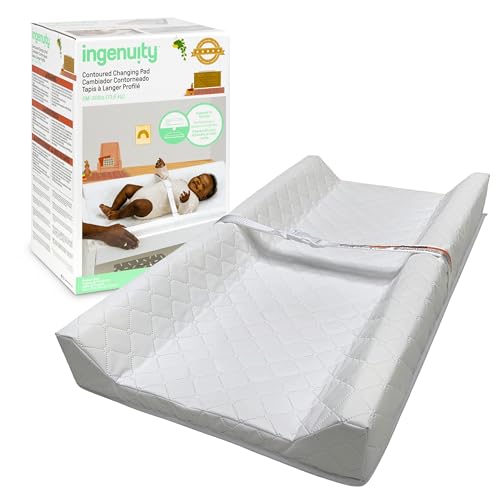As new parents, we may be surprised to learn that by the end of the first week, a newborn can go through an impressive number of diaper changes due to their frequent pooping habits.
But have you ever wondered if there is such a thing as too much or too little poop from your little one?
Understanding the ins and outs of newborn poop patterns can provide valuable insights into your baby's health and well-being.
Let's uncover the mysteries behind newborn pooping habits together.
Key Takeaways
- Breastfed infants may poop up to six times a day, while formula-fed babies typically have 1-4 bowel movements daily.
- Breastfed baby poop is mustard-yellow and soft, while formula-fed baby poop is tan and firmer in consistency.
- Changes in poop color or consistency should be monitored for signs of health issues, like blood or mucus.
- Consulting healthcare providers for concerns about poop frequency or appearance is essential for newborn health.

Ubbi Disposable Diaper Sacks, Lavender Scented, Easy-To-Tie Tabs, Diaper Disposal or Pet Waste Bags, 200 Count
Durable & Leak-Proof: Securely holds diaper waste or pet waste, ensuring leak-proof disposal with easy-to-tie tabs for a…
As an affiliate, we earn on qualifying purchases.
As an affiliate, we earn on qualifying purchases.
Newborn Poop Frequency
When caring for a newborn, it's important to understand the frequency of their bowel movements to guarantee their health and well-being. In a baby's first year, one of the initial milestones is passing what's known as meconium, which is made up of thick, sticky, tar-like substances. It's reassuring to witness your baby's first bowel movements, indicating the digestive system is functioning as expected.
For parents, it's essential to monitor how often a newborn poops. Breastfed infants might've bowel movements after each nursing session, sometimes up to six times a day in the early weeks. On the other hand, formula-fed babies typically have around 1-4 bowel movements daily, usually with larger but less frequent stools. Stool consistency can vary widely, from soft to more formed, and colors can range from yellow to green to brown. Keeping an eye on these patterns can provide valuable insights into your baby's health. If you notice any concerning changes, such as bloody stool, it's advisable to consult with a healthcare professional promptly.

ARENTI WiFi Baby Camera Monitor B2 Kit 2025 Upgraded, 5-inch Wireless Display, Smartphone App, Encrypted Connection, Lullaby, Super Night Vision, Auto Tracking, Temp Sensor, Support Local Storage
Easy Installation & Dual Usage – Enjoy plug-and-play convenience with two options to use. Use the LCD screen…
As an affiliate, we earn on qualifying purchases.
As an affiliate, we earn on qualifying purchases.
Breastfed Vs. Formula-Fed Pooping
Exploring the world of newborn care involves understanding the nuances between breastfed and formula-fed infants when it comes to their bowel movements. Breastfed babies tend to have more frequent bowel movements, sometimes even after each nursing session. On the other hand, formula-fed babies typically have fewer but larger bowel movements compared to their breastfed counterparts.
The color and consistency of baby poop also differ between the two groups: breastfed baby poop is mustard-yellow and softer, while formula-fed baby poop is tan or yellow and firmer in texture. These distinctions in the frequency and characteristics of baby poop highlight the impact of feeding choices on newborn bowel movements.
As caregivers, observing and recognizing these patterns is crucial for the well-being of our little ones. Understanding the unique pooping behaviors of breastfed versus formula-fed babies can provide valuable insights into their digestive health and overall development.

Baby Poop Color Chart, Infant Stool Guide for New Parents & Caregivers Canvas Poster Bedroom Decor Landscape Office Room Decor Gift Unframe-style Unframe-style 12x18inch(30x45cm)
【Durable & High Quality】 All our wall art prints are made of high-quality canvas, thick and not easy…
As an affiliate, we earn on qualifying purchases.
As an affiliate, we earn on qualifying purchases.
Baby Poop Appearance
Observing the appearance of your baby's poop can provide valuable insights into their digestive health and overall well-being. When it comes to baby poop, each type indicates different stages and aspects of your baby's bowel movements. Here's what you might notice:
- Meconium: The first baby poop, meconium, is dark greenish-black, sticky, and odorless, typically present in the first few days.
- Transitional Stool: Following meconium, interim stool appears after 2-4 days, lighter in color and less sticky.
- Breastfed Baby Poop: Healthy breastfed baby poop is usually yellow or green, with a mushy consistency resembling Dijon mustard.
- Formula-Fed Baby Poop: Formula-fed babies tend to have pasty, peanut butter-like poop in various shades, reflecting their diet.
As your baby grows and their diet expands with the introduction of solid foods, you may observe changes in the color and consistency of their poop, which is a normal part of their development. Understanding these variations can help you stay informed about your baby's health and well-being.

Ingenuity Contoured Changing Pad – Includes Waterproof Changing Liner and Safety Fastening Strap with Quick-Release Buckle
COMFORTABLE: The Contoured Changing Pad features a double-layered top foam pad that keeps baby comfortable and cozy during…
As an affiliate, we earn on qualifying purchases.
As an affiliate, we earn on qualifying purchases.
Signs of Health Concerns

If you notice bright red blood in your baby's poop, it could indicate a milk protein allergy or infection, and seeking prompt attention from a healthcare provider is crucial.
Additionally, the presence of mucus in your baby's poop for more than two days may suggest an underlying health issue that requires further evaluation. Greenish poop streaked with shiny strings could be a sign of mucus, which should also be monitored closely.
Moreover, blackish blood in your baby's poop might be a result of breastfeeding mothers with cracked nipples, leading to blood passing through breast milk. Any alarming changes in poop consistency or color, such as persistent bright red blood, unusual mucus, or dark blackish blood, shouldn't be ignored.
These signs could indicate potential health concerns that need medical assessment to safeguard the well-being of your baby. Remember, always consult with your healthcare provider if you have any doubts or notice concerning changes in your newborn's poop.
Monitoring Poop Patterns
Tracking your newborn's diaper counts is an effective way to monitor their poop patterns accurately. Keeping an eye on how often your baby poops can provide valuable insights into their digestive health.
Here are some essential points to contemplate when monitoring your newborn's poop patterns:
- Changes in Frequency: Any sudden changes in the frequency of your baby's bowel movements could indicate underlying health issues that need attention.
- Consistency Matters: Regularly observing the consistency of your baby's poop can help you gauge their digestive health and identify any abnormalities.
- Consulting Healthcare Providers: If you have concerns about your newborn's poop patterns, it's critical to consult with a healthcare provider, such as your pediatrician, for professional advice and guidance.
- Maintaining a Poop Diary: Keeping a poop diary can assist you in tracking and recording any irregularities in your baby's poop, making it easier to discuss these findings with the pediatrician during appointments. Remember, your healthcare provider is there to help address any concerns you may have regarding your newborn's poop patterns.
Frequently Asked Questions
How Often Should a Newborn Poop Chart?
We get your concern. Newborns' poop frequency can vary, but monitoring it is important. Breastfed babies may go multiple times a day, while formula-fed ones might go less. Trust your instincts and consult your pediatrician if worried.
How Many Poop per Day Is Normal for Newborn?
As parents, we comprehend the concern about newborn poop frequency. Typically, babies can have multiple bowel movements daily. Breastfed infants might poop 6-10 times, while formula-fed babies may have 1-4 poops. Always consult your pediatrician for advice.
What Is a Normal Poop Schedule for a Baby?
I comprehend the worries about your baby's poop schedule. It's common for newborns to poop frequently, which decreases as they grow. If you're concerned, reach out to your pediatrician. Trust your instincts!
How Many Times a Day Should a Newborn Poop on Formula?
We found that formula-fed newborns typically poop 1-4 times daily, but it can vary. The stools are firmer, yellow to brown, like peanut butter. If you notice changes, talk to your healthcare provider for guidance and support.
Conclusion
We've covered everything you need to know about your newborn's poop! Remember, they may surprise you with their frequent bowel movements, but it's all part of their healthy development.
So, keep an eye on those diapers and don't be alarmed by the sheer volume of poop. Trust us, it's all worth it in the end when you see your little one thriving and growing.
Happy pooping, parents!









